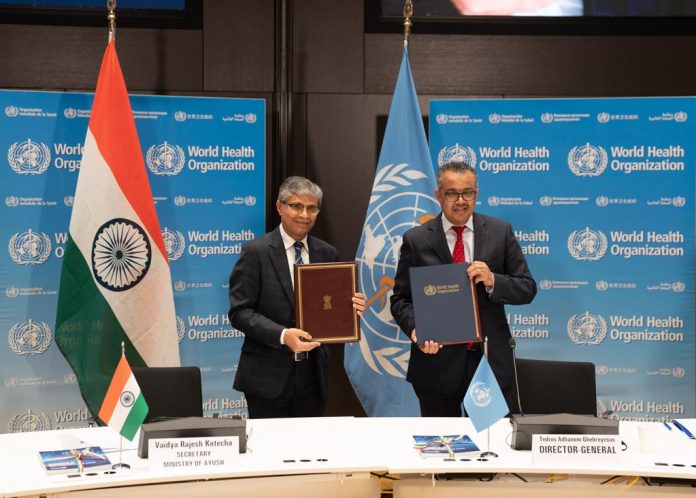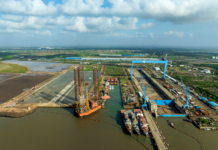New Delhi: India and the World Health Organization (WHO) signed an agreement to establish the WHO Global Centre for Traditional Medicine at Jamnagar, Gujarat.
The onsite launch of the new WHO global centre for traditional medicine in India will take place on April 21, 2022, the WHO said in a statement.
This global knowledge centre for traditional medicine, supported by an investment of USD 250 million from the Government of India, aims to harness the potential of traditional medicine from across the world through modern science and technology to improve the health of people and the planet, the statement added.
Commending an agreement between the Ministry of Ayush and the World Health Organization to establish the WHO Global Centre for Traditional Medicine at Jamnagar, Prime Minister Narendra Modi in a tweet said today, “India is honoured to be home to a state-of-the-art @WHO Global Centre for Traditional Medicine.”
“This Centre will contribute towards making a healthier planet and leveraging our rich traditional practices for global good,” he said in a Tweet.
“Traditional medicines and wellness practices from India are very popular globally. This @WHO Centre will go a long way in enhancing wellness in our society,” he added.
The new WHO centre in Jamnagar will serve as the hub, it is being designed to engage and benefit all regions of the world, the WHO said.
It will concentrate on building a solid evidence base for policies and standards on traditional medicine practices and products and help countries integrate it as appropriate into their health systems and regulate its quality and safety for optimal and sustainable impact, it said.
It focuses on four main strategic areas: evidence and learning; data and analytics; sustainability and equity; and innovation and technology to optimize the contribution of traditional medicine to global health and sustainable development, the statement added.
According to WHO, around 80% of the world’s population is estimated to use traditional medicine. To date, 170 of the 194 WHO Member States have reported the use of traditional medicine, and their governments have asked for WHO’s support in creating a body of reliable evidence and data on traditional medicine practices and products.
“For many millions of people around the world, traditional medicine is the first port of call to treat many diseases,” said WHO Director-General Dr Tedros Adhanom Ghebreyesus.
“Ensuring all people have access to safe and effective treatment is an essential part of WHO’s mission, and this new centre will help to harness the power of science to strengthen the evidence base for traditional medicine. I’m grateful to the Government of India for its support, and we look forward to making it a success,” he added.








